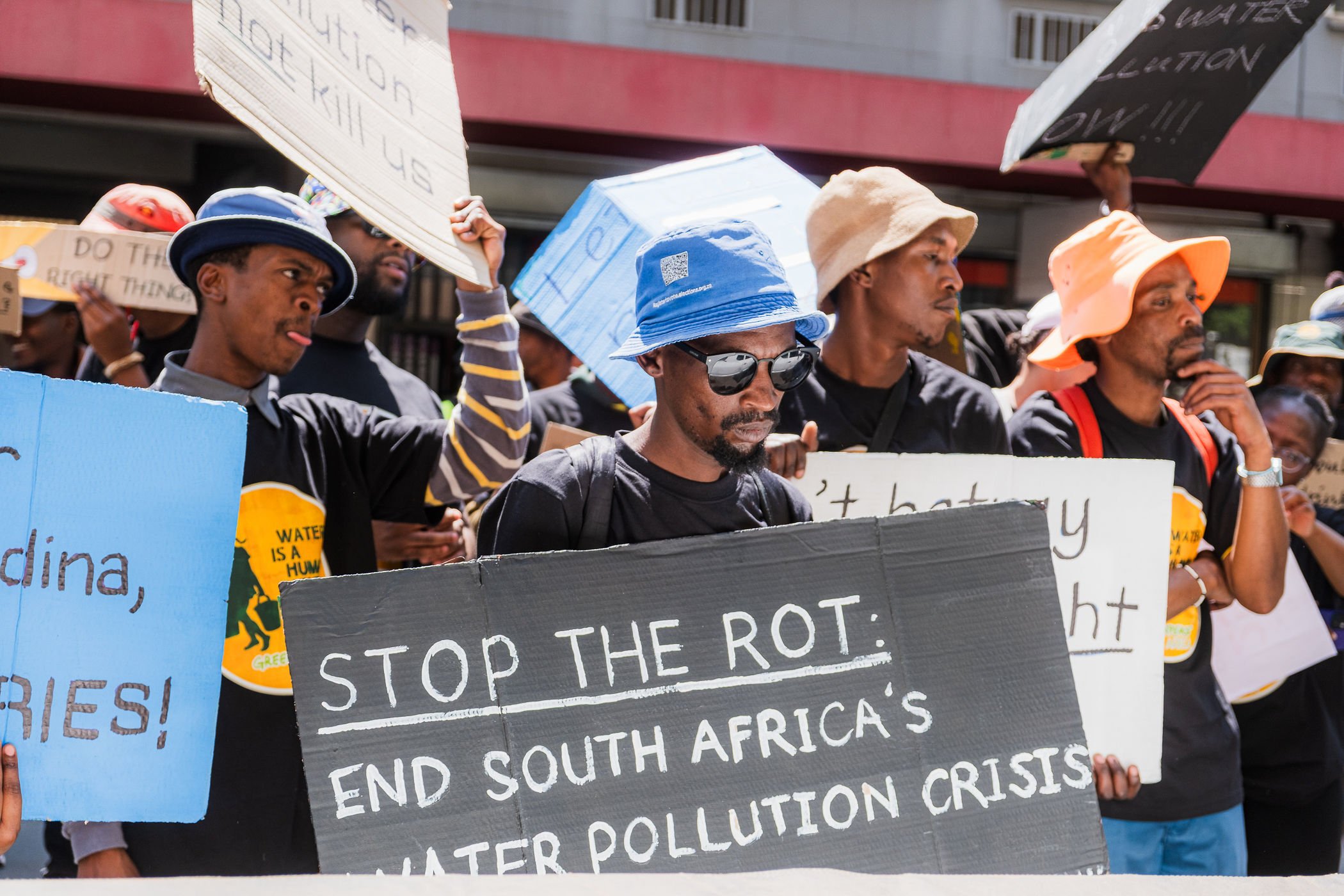21 March, Johannesburg – On Human Rights Day, Greenpeace Africa calls on the South African government to fast track a just transition to renewable energy. Doing so will prioritise South African’s rights to a safe and healthy environment as enshrined in the constitution. South Africa’s youth can not continue to wait for jobs to arrive; they need decent employment opportunities to be created now.
“South Africans are suffering in a multidimensional way, yet the solution is staring us in the face: a just transition to renewable energy is the best and most immediate solution to the many intersecting crises we are facing. A just transition that centers the voices, concerns, and needs of South Africans is what we need, and the opportunity to shift gears and lead the world away from fossil fuel dependence is ripe as we recover from the pandemic,” said Nhlanhla Sibisi, Greenpeace Africa’s Climate and Energy Campaigner.
South Africa is currently faced with a multitude of crises. The country has one of the highest unemployment rates in the world, with skyrocketing youth unemployment. South Africa’s historical addiction to coal has led to an air pollution crisis in the Highveld that is still ongoing, costing thousands of people their health – and their lives – every year; and the global climate crisis continues to advance in the absence of decisive climate action. Meanwhile, the government continues to stall and remain idle.
According to research published by Greenpeace in 2019, millions of renewable energy jobs can be created across the continent’s energy sectors – at least 4.7 million by 2050 [1]. Plant and machine operators and assemblers would see the largest job increase – over 300% – with electricians and labourers close behind (more than 200%).
“A just transition ensures that South Africans’ right to a clean and safe environment is protected while also creating decent employment for South African youth who are eager to join the workforce, earn an income, and support their families,” continued Sibisi. “The government has said all the right things; but impactful action still remains to be seen.”
In November 2021, the South African government announced a historic partnership with the governments of France, Germany, the United Kingdom and the United States, as well as the European Union, to support a just transition to a low carbon economy and a climate resilient society in South Africa. Greenpeace Africa calls on the South African government to show that they have the political will to not only say the right thing, but to do the right thing by undertaking a real just transition.
ENDS
Notes to the editor
[1] In 2019, Greenpeace released two key reports on the just transition. The first, ‘Employment Effects of a Global Energy Transition,‘ shows the impressive benefits to employment of a Just Transition towards a 100% renewable energy supply – globally and across continents and is available here.
This was released along with ‘Case Studies from Transition Processes in Coal-dependent Communities,’ which presents a collection of case studies of Just Transition processes in four coal-dependant countries, offering recommendations for South Africa where Mpumalanga is the key coal region discussed. This report is available here.
Contact details
Greenpeace Africa Press Desk: [email protected]
Chris Vlavianos, Greenpeace Africa Communications Officer: +2779 883 7036, [email protected]




Discussion
To prevent Erosion in our Society ,we have to make Green ,by Planting Trees and also Food Trees
Thank you for your comment. Indeed, we need to protect our fragile planet.
I think if we can continue to do our program of cleaning the Oceans Weekends,as we have been started during December but now , there' lack of funding to take my Group to the Oceans ,I have to pay Taxi Trip about R2000 a return Trip
Thank you for your comment. Governments must implement strict measures of banning single-use plastic packaging; this will help reduce plastic waste both on land and at sea.